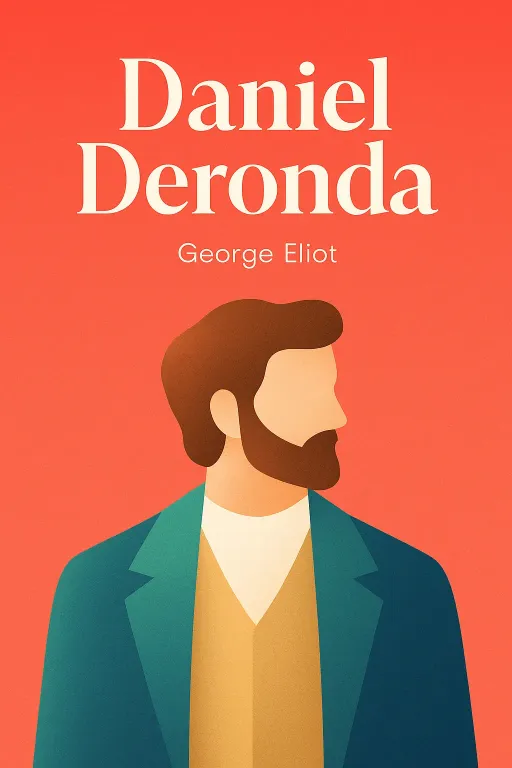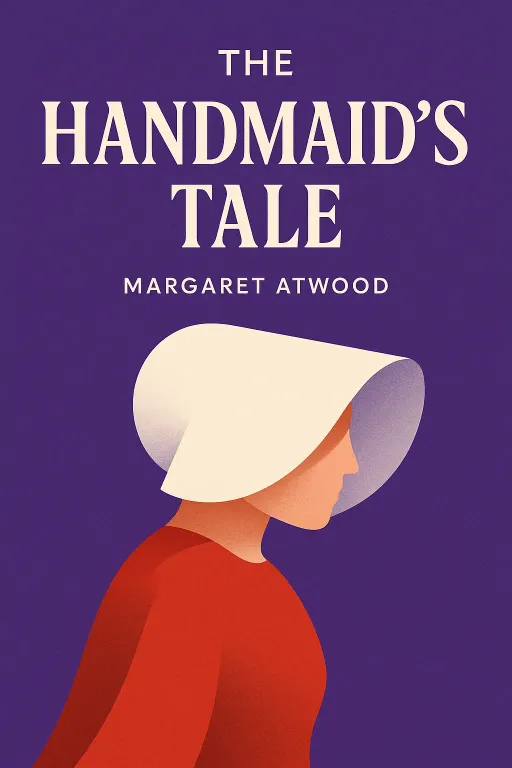
Daniel Deronda
9 minIntroduction
Narrator: Was she beautiful or not beautiful? This was the question observers asked themselves as they watched a young woman at a gambling table in the opulent European resort of Leubronn. With an air of defiant confidence, she placed bet after bet, her gaze fixed on the spinning roulette wheel. But another man, Daniel Deronda, watched her with a different kind of intensity—a look of judgment that pierced her carefully constructed composure. When a letter arrives revealing her family’s financial ruin, this proud, headstrong woman is forced to pawn her necklace, only to have it mysteriously returned by the very man whose gaze she resents. This dramatic opening to George Eliot’s final novel, Daniel Deronda, sets the stage for a profound exploration of a woman's struggle for identity and agency in a world that offers her very few choices. It is a story about the clash between a powerful will and the unyielding constraints of society, and the moral compromises one must consider when faced with ruin.
Gwendolen Harleth is a Study in Self-Centered Ambition
Key Insight 1
Narrator: The novel introduces Gwendolen Harleth as a "spoiled child," a young woman accustomed to being the center of attention and getting her way. Her character is a complex mix of rebellious spirit, a desperate need for admiration, and a profound lack of empathy. This is vividly illustrated in a series of anecdotes from her childhood. In one instance, irritated by the shrill singing of her sister's canary, a young Gwendolen simply strangles the bird in a fit of temper. While she feels a pang of remorse, she quickly rationalizes her cruelty, attributing it to her "peculiar sensitiveness" and "general superiority."
This self-centeredness extends to her family. In another story, her ailing mother, Mrs. Davilow, asks for help retrieving medicine in the middle of the night. Gwendolen, warm and comfortable in her bed, refuses. Her own comfort takes precedence over her mother's pain. These incidents are not presented as simple childhood misdeeds but as foundational elements of her character. They reveal a young woman who has been conditioned to see the world as a stage for her own desires, with other people, even those closest to her, as secondary characters in her personal drama. This ingrained egoism and lack of rooted affection for others sets the stage for the calamitous choices she will make when her world of privilege collapses.
The Clash Between Aspiration and Reality
Key Insight 2
Narrator: Faced with her family's financial ruin, Gwendolen is determined to avoid the dreary, impoverished life of a governess. She believes her talents and beauty destine her for something remarkable. Her ambition first turns to the stage, and she imagines herself becoming a celebrated actress or singer, a path that would grant her both fame and financial independence. To validate this dream, she seeks the counsel of Herr Klesmer, a renowned and brutally honest musician who is a friend of the wealthy Arrowpoint family.
The consultation is a disaster for Gwendolen's ego. She presents her desire to go on the stage, expecting encouragement. Instead, Klesmer delivers a crushing dose of reality. He explains that true artistry is not a casual pursuit but a life of grueling, thankless labor that must begin in childhood. He uses the example of a mountebank's child, whose body and voice are trained from infancy, to illustrate the immense dedication required—a dedication Gwendolen has never shown. He tells her bluntly, "You have not yet conceived what excellence is." While he concedes that her beauty might get her a place on stage, it would be a path of indignity, not art. Klesmer’s critique shatters Gwendolen's fantasy, forcing her to confront the chasm between her grand aspirations and her actual capabilities, leaving her with even fewer perceived options to escape her fate.
Marriage as the Only Escape
Key Insight 3
Narrator: With her artistic ambitions dashed, Gwendolen is forced to confront the primary path available to women of her class in Victorian society: a brilliant marriage. The arrival of Henleigh Mallinger Grandcourt, the wealthy and aristocratic heir to a nearby estate, sets the local society abuzz with matrimonial speculation. For Gwendolen’s family, particularly her uncle, Mr. Gascoigne, a match with Grandcourt is seen as the perfect solution to their financial woes and Gwendolen's difficult personality.
Gwendolen, though cynical about the social maneuvering, is drawn into the game. At an archery meeting, she excels, capturing the attention of all, including the newly arrived Grandcourt. He is not the dashing hero of romance; he is cold, languid, and speaks with an indifferent drawl. Yet, his very lack of eagerness presents a challenge to Gwendolen. She sees in him a man she could potentially manage, a husband whose coldness might mean he would be less interfering. Their courtship is a subtle power play. At a ball, Gwendolen refuses to waltz, a small act of rebellion to assert her individuality. Grandcourt, rather than being put off, is intrigued. He observes her, his pursuit slow and calculated, which only heightens her interest. For Gwendolen, marriage to Grandcourt represents not love, but a "gate into a larger freedom"—a way to reclaim the power and status she has lost.
The Moral Reckoning of a Hidden Past
Key Insight 4
Narrator: Just as Gwendolen prepares to accept Grandcourt, believing she has found her escape, a secret from his past emerges to challenge her decision. During another archery event, she receives a mysterious letter urging her to meet a woman at a secluded spot known as the Whispering Stones. The letter promises a revelation that will help her decide about Grandcourt. Intrigued and unnerved, Gwendolen goes.
There, she meets Lydia Glasher, a faded but still striking woman who reveals a devastating truth: she is Grandcourt’s former mistress and the mother of his four illegitimate children. Mrs. Glasher tells Gwendolen that she abandoned her own husband for Grandcourt years ago, on the promise that he would one day marry her. She pleads with Gwendolen not to accept his proposal, arguing that by marrying him, Gwendolen would be robbing Mrs. Glasher's son of his rightful inheritance and destroying any hope of justice for her family. This encounter is a moral cataclysm for Gwendolen. The choice is no longer simply about her own future; it is now entangled with the fate of another woman and her children. The knowledge of this "wrong" inflicts a deep wound on Gwendolen's conscience, forcing her to flee and reject Grandcourt's impending proposal.
The Desperate Choice
Key Insight 5
Narrator: Gwendolen’s flight is short-lived. The grim reality of her family's poverty and the humiliating prospect of becoming a governess for the pious Mrs. Mompert weigh heavily on her. Her brief moment of moral clarity is eroded by the persistent, grinding pressure of her circumstances. It is in this state of despair that Grandcourt, undeterred by her initial rejection, writes to her again.
His letter presents a moment of terrible choice. On one side is a life of drudgery and social insignificance. On the other is a life of wealth, power, and influence, but one built on the suffering of another woman. Her mother, unaware of the moral dilemma, gently pushes her towards Grandcourt, seeing his persistence as proof of genuine love. Torn between her conscience and her desperation, Gwendolen accepts. She rationalizes her decision, telling herself she can influence Grandcourt to provide for Mrs. Glasher and her children. But her acceptance is grave, like an answer given in a court of justice. She has made her choice, securing her escape from poverty but binding herself to a man she does not love and a moral compromise that will haunt her.
Conclusion
Narrator: Ultimately, Daniel Deronda is a profound examination of the nature of choice, especially for women constrained by the rigid structures of Victorian society. The central takeaway is that our decisions are rarely made in a vacuum; they are shaped by a complex web of personal ambition, societal pressure, and moral consequence. Gwendolen Harleth's journey is a tragic illustration of how a flawed character, driven by ego and desperation, can make a choice that secures material freedom at the cost of her soul's integrity.
The novel leaves us with a challenging question: When faced with a future of humiliation and a path to power that requires a moral compromise, what constitutes a "right" decision? George Eliot doesn't offer an easy answer, instead compelling us to look at the unmapped country within ourselves and consider the price of our own desires.









